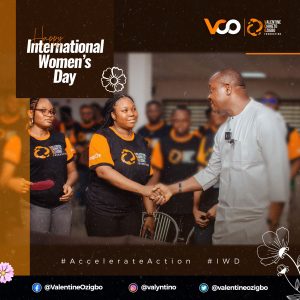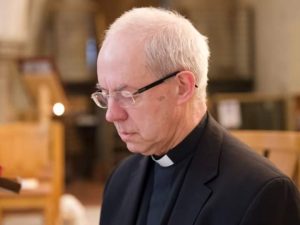Wheelbarrow pusher stabs colleague to d@ath in Nasarawa
In the bustling Angwan Maina Park of Lafia, the capital city of Nasarawa State, life usually unfolds at the frenetic pace of commerce and survival. Wheelbarrow pushers, traders, loaders, and drivers work side by side every day in a delicate rhythm of cooperation and competition. But on April 10, 2025, the fragile peace of this commercial hub was shattered by a senseless act of violence—an incident that has thrown the entire community into mourning and sparked a broader conversation about desperation, anger, and life on the economic margins.
According to the Nigerian Security and Civil Defence Corps (NSCDC), 20-year-old Alfa Ali, a wheelbarrow pusher at the park, was arrested for allegedly stabbing his colleague, 22-year-old Hayyatu Ibrahim, to death. The murder was reportedly the result of a lingering grudge following a dispute over who should transport goods offloaded from a commercial vehicle that had just arrived from Jos, Plateau State.
Though this may sound like a petty squabble, to those in the community of daily wage earners, these kinds of decisions can mean the difference between eating that day or going to bed hungry. And sometimes, that desperation boils over into tragedy.
YOU MAY READ
Pregnant Nigerian Woman Brutally Murdered by Unknown Assailants in Her Matrimonial Home
Angwan Maina Park is not the kind of place one visits for comfort or beauty. It is gritty, noisy, and chaotic—a dense maze of traders, street vendors, transporters, and service providers all hustling to survive. Wheelbarrow pushers like Alfa and Hayyatu are essential to the ecosystem. They ferry heavy loads from trucks to shops, from markets to homes, from warehouses to stores. They are paid per load, and every job is contested by dozens of others also trying to earn a living.
Many of the pushers are young men who migrated from Northern states like Jigawa, Katsina, and Zamfara, fleeing poverty, lack of education, and in some cases, insecurity. Life in Lafia, though difficult, offers the hope of daily income.
Alfa and Hayyatu were both from Jigawa State. They were not just colleagues, but fellow migrants from the same region, doing the same work, trying to carve out a future in a hard environment.
But beneath the camaraderie that often exists in such communities, tensions are never far from the surface. Work opportunities are few, competition is fierce, and the daily grind can breed frustration.
According to ASC Muhammed Suraju, the spokesperson of the NSCDC Nasarawa Command, the tragic incident was not spontaneous—it was premeditated. The seeds of violence were planted two days before the actual murder, when Alfa and Hayyatu got into an argument over who should carry a specific load of goods brought in by a truck from Jos.
YOU MAY READ
Family announce funeral arrangements for banker murdered by kidnappers despite huge ransom payment in Anambra
In a place like Angwan Maina Park, such disputes are common. Usually, they are resolved by senior loaders or through informal arrangements among the pushers. But this time, no such resolution was reached.
Witnesses say the argument became heated. Both men shouted at each other, and Alfa reportedly walked away muttering that “this thing is not over.” Hayyatu, for his part, seemed to have moved on. He continued with his work, oblivious to the danger lurking in the heart of a colleague he likely trusted.
Two days later, the simmering anger exploded.
On April 10, around 2:00 p.m., Alfa approached Hayyatu at the park. Without warning, he pulled out a sharpened horn—a makeshift weapon—and stabbed Hayyatu in the chest. The attack was so swift that most bystanders didn’t realize what had happened until Hayyatu collapsed, blood pouring from the wound.
Pandemonium broke out. People screamed. Some tried to help the dying man. Others gave chase as Alfa attempted to flee.
YOU MAY READ
Nnamdi Azikiwe lecturer, Dr. Osita Chinedu Murdered in Awka
According to the NSCDC, patrol operatives on duty in the area quickly moved in and apprehended Alfa. He was about to flee “to his hill,” presumably his place of residence on the outskirts of town, when he was caught.
Hayyatu was rushed to the Federal University Teaching Hospital, Lafia, but it was too late. He was pronounced dead on arrival.
During interrogation, Alfa reportedly confessed to the crime. He admitted that the argument over the goods had deeply angered him, and he had been nursing thoughts of revenge. The horn he used was carried intentionally, a grim indication of premeditation.
“It was in his heart all along. The boy is not mad. He planned it. It’s heartbreaking,” said Alhaji Suleiman, one of the senior union loaders at the park. “We try to settle disputes here all the time. If he had reported to us, we would have solved it. Now a life is gone, and a young man has destroyed his future.”
The NSCDC Commandant, Muhammed Kabir Ingawa, has ordered that Alfa be charged to court after investigations are completed. According to officials, the case will be prosecuted to the full extent of the law.
ASC Suraju used the opportunity to issue a public warning: “Residents must be mindful of the people they keep close. Disagreements, jealousy, and anger can lead to irreversible outcomes. We must all be careful.”
Hayyatu Ibrahim was just 22 years old. A native of Gumel in Jigawa State, he came to Lafia three years ago with dreams of helping his family back home. He sent money home every week—little sums, often no more than ₦2,000 or ₦3,000—but they meant a lot to his aging parents and younger siblings.
“He wanted to save money to open a small shop,” said Bashir, a friend and fellow wheelbarrow pusher. “He used to say he wanted to sell provisions or foodstuffs. He didn’t want to do this job forever.”
Now, that dream has ended in blood.
YOU MAY READ
Man hacks his 68-year-old mother to d3ath with axe, attempts suicide in Anambra
His body was transported to Jigawa for burial, accompanied by a delegation of the Jigawa community in Lafia. A small funeral was held, and his mother reportedly collapsed upon seeing his corpse.
The tragedy has left a scar not only on his family but also on the entire wheelbarrow-pushing community in Lafia. Many of them are now afraid—afraid not just of violence from outsiders, but of the tensions brewing among themselves.
“If it can happen like this, over one job, then who is safe?” asked Musa, another migrant laborer. “We all argue sometimes. But we never think it will end in death.”
Incidents like this raise difficult questions. What drives a young man to kill a colleague over what is essentially a ₦300–₦500 job? What kind of mental and emotional environment produces such outcomes?
Experts point to the toxic combination of poverty, lack of education, daily humiliation, and untreated trauma that many young laborers in Nigeria live with.
“These are young men who have no prospects, no support systems, no access to mental healthcare, and very little control over their circumstances,” said Dr. Ifeanyi Eze, a sociologist at Nasarawa State University. “When you compress so much pressure into a human being, they can explode.”
He added that the growing incidence of peer-on-peer violence among Nigeria’s informal workforce is a sign of a society under strain.
“Youth unemployment, social exclusion, and economic hardship are pushing many to the edge. The case in Lafia is tragic, but sadly, it is not isolated.”
While Alfa Ali will now face murder charges, justice for Hayyatu requires more than court proceedings. It demands a broader reflection on how Nigerian society treats its poorest citizens.
YOU MAY READ
Kidnappers Kill APC National Director After Collecting N90 Million Ransom
“There must be counseling and conflict resolution mechanisms even for informal workers,” said Aisha Dantata, a human rights advocate. “We must stop pretending that only the rich deserve mental health or legal protection.”
She called on the Lafia Local Government Authority to work with labor unions and community leaders to set up peace committees, mental health outreach, and job mediation services in major parks and markets.
“If we do nothing, it will happen again,” she warned.
The death of Hayyatu Ibrahim is a cautionary tale. It is a story about the thin line between normalcy and chaos, the consequences of unresolved anger, and the human cost of systemic neglect.
It is also a story about friendship turned sour, survival dreams turned deadly, and a society that must do more to support its most vulnerable.
Hayyatu deserved more. He deserved a chance to grow, to prosper, to live. Instead, he became another name in a long list of Nigerians lost to preventable violence.
And Alfa? He will now face the full force of the law. But long after he is sentenced, the echoes of that fateful afternoon will linger—in Angwan Maina Park, in the broken home of Hayyatu’s family, and in the hearts of all who witnessed the gruesome end of what began as a small argument.
As Nigeria continues to grapple with its many challenges, let this story be a reminder that every life matters. That behind every wheelbarrow is a human being with dreams, fears, and limits. And that peace—true peace—requires not just silence, but justice, support, and care.





